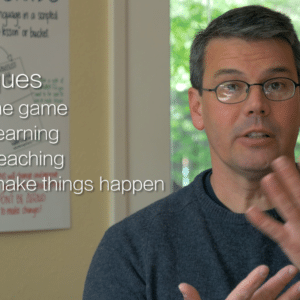You are considering “setting-up” a game to pull or push language. To do this, you need players and/or “fluent fools”. For the most satisfying game, you ensure potential players are “Warm/Fed/Rested/Safe/Willing”.
Humans are animals with bodies, and are therefore subject to biological constraints.
It may seem laughably obvious to make the above statement. But for some reason, in the modern world, it’s easy to forget that humans have the same needs as all other living beings. There are many expressions of this principle, such as Maslow’s Hierarchy of Needs, Max-Neef’s Fundamental Human Needs, Nonviolent Communication/NVC, and so on. Whatever model you favor, it is clear that observing players’ energy levels will improve their performance.
Hospitality rules in many cultures obligate hosts to make sure any guest has food, water and rest, before plying them with questions or conversation.
Regardless of these very real needs, many students and teachers will proceed in spite of lack of sleep, nourishing food, or sufficient trust and comfort. Teachers usually evaluate students without adjusting expectations according to these criteria. Students may not even see these needs as an issue.
Our modern cultural blind-spot surrounding these basic human needs easily make this technique one of the easiest to improve upon. Think of your players as farm animals, having biological and psychological needs; are they rested? Are they comfortable? Is there sufficient trust between you? Do they feel physically and emotionally safe? Have they agreed to play without coercion? Have they eaten?
Any one of these elements can be expanded upon. For example, a very common issue is that certain foods create the infamous “food coma”, marked by physical and mental slugglishness. By choosing energizing foods over those that slow players down you will markedly accelerate play, especially during larger scale game events.
If by your observation, or through questioning players, you discover there are unmeet needs, then you must consider how much is missing; how hungry are they? How tired? Your game will take more out of you as a game leader, to the degree that players don’t have these needs met. It’s your choice how much energy you are willing to expend to make up for the energy missing from your players.
Introducing the technique
Short: “Technique ‘Warm/Fed/Rested/Safe/Willing’ encourages you to filter the players you choose according to the energy and skill you have to run a game. The more exhausted your players, the more skill you’ll need, the more energy it will take.”
Long: “Many games that don’t work or that are a struggle can be explained because of the players chosen ‘sorry, charlied’ the ability of the game leader.”
Applying the technique to language acquisition
This technique is usually shared with experienced WAYK players, not with newbies in basic games. However there are many child-techniques that follow from “Warm/Fed/Rested/Safe/Willing”, commonly shared with beginners.
• Set-up a TQ Lunatic Fringe for players who are new, and need some time to warm up to the idea of playing.
• Set-up an TQ Inner Circle for players who are ready and willing to start playing.
• Set-up a TQ the Meadow for players who have the least amount of energy to play, unable to focus on copy-catting. This can apply to young children, elders, and anyone else appropriate.
• TQ Do Food, scaled to the level of the game play; for small games, snacks and drinks. For big events, set-up an all-day snack table and group meals.
• Share TQ Full with players as soon as possible, to give them a tool to self-regulate their engagement in the game.
• Call TQ How Fascinating early and often, to minimize players’ draining negative self-talk and release tension.
• When TQ Everybody Plays All-the-Time participants extend the energy they have available to a remarkable extent. For this reason, make sure the game stays a game, and not a “class” or a “learning exercise”.
• Only TQ Correct One Thing at a time – overcorrecting players will drain and overwhelm them, and cause them to call TQ Full early.
But what about…?
What if the only players you have available are tired, hungry, or reluctant to play? There is no absolute rule – as long as you know you will have to make up for the energy missing from your players, by wielding more techniques, at a higher proficiency.
TQ Warm/Fed/Rested/Safe/Willing applies to the game leader most of all.
• Though humans are capable of ecstatic states and super-performance, seemingly irrespective of their biology, avoid relying on this for game play. TQ Limit, TQ Start at the Beginning, and proceed in TQ Bite-sized Pieces.
• TQ Let it Go if a player doesn’t want to play – the best players are willing and excited.
• Ask players with low energy to sit in TQ the Lunatic Fringe, or TQ the Meadow. Go with your observations and your intuition.
• Ask if players are TQ Full early, before they get too overwhelmed.






